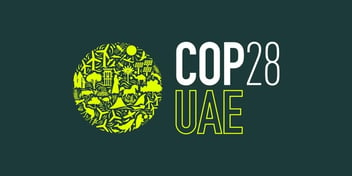A one-stop shop for climate adaptation
As the impact of climate change begins to make itself felt on people and communities around Australia, water utilities will have to improve their adaptation strategies. For individual utilities, then, the question becomes one of how best to do that.
Seeking to streamline the large amount of information related to climate change mitigation strategies was the inspiration behind a new project by WaterRA, in collaboration with the University of Adelaide, SA Water and other industry partners and academics across Australia.
The result is Resiliwiki, an online resource for climate adaptation activity for water utility professionals, which brings together information relating to adaptation advice, resilience assessments and scoping projects for third parties.
“[It] is designed to be your first stop in the climate adaptation guidance,” said Leon van der Linden, Senior Research Program Manager at SA Water. “It will help you to the right kinds of resources and has been thoroughly reviewed by leaders within the climate adaptation space.”
Even in the most optimistic of mitigation scenarios, he said, adaptation will be required.
“The reason is the ocean and the atmosphere have such significant inertia that those changes are already underway and will continue to occur into the near future,” van der Linden said.
“We are in an era of adaptation, but adaptation is challenging. We need to embed this practice within our organisations. We need to know how to plan under uncertainty, and we need to understand how climate change might impact the water utilities where we work. We need to use data and make good assessments.”
Presenting Resiliwiki at the Ozwater’21 conference in Adelaide, van der Linden said that there were a number of resources already available, but the appropriate selection and use of climate change information is a challenge.
“This project itself was built upon the WSAA climate change adaptation guidelines, and these are really built to try to establish that practice of adaptation thinking within water utilities,” he said.
“There are information books that are quite specific, such as Coast Adapt, which take a focus on impacts on coastlines, and there are a lot of data sets that we can use as part of assessments, for example, Climate Change in Australia.”
The resource also used state-based projections, he said.
“We have ongoing projections in South Australia; the Victorians have got their own set. So this is just the tip of the iceberg,” he said.
“There's a lot of information out there, but if you don't have experience with using these kinds of data sets and addressing these information portals, then it can be quite a challenge. So what we saw as a useful contribution in this space is a resource to provide guidance to help water utilities, staff members, and people consulting to them to navigate that space.”
SA Water’s Jeffrey Newman said the tool is designed to augment other data services.
“Our point is not to replicate guidance, but to point you to those other resources that they identified,” he said. “Given the amount of resources, which ones do I go to, is one of the things it tries to aim for rather than replicating that.”
Van der Linden said he hoped the resource would continue to be updated.
"Our hope is that we can keep updating the framework," he said. "The idea was that it becomes a living entity. A good wiki is one that has contributors, gets updated, and we make it better."



